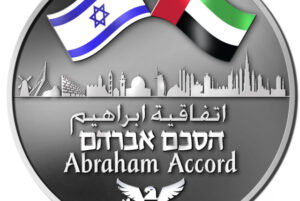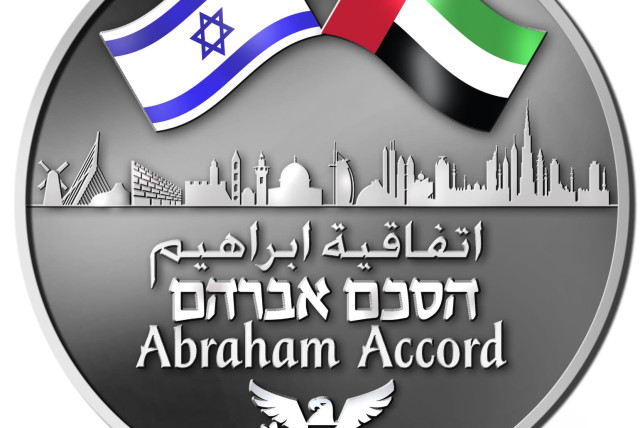In my entire lifetime, I never dreamed that this would be possible, let alone actually happen. I grew up believing and knowing that these people despise us. The Arab Boycott whether we liked it or not, has been a very large part of our lives in the Middle East, affecting us from many different angles, especially in business.
Way before there was a high-tech or a fintech world, I worked in Freight Forwarding in lower Manhattan (pre-9/11 days as well). There were times when I had to document export freight shipments to Arab nations, including ports in the United Arab Emirates (UAE), on Bills of Lading with the statement, “This Shipment is forbidden to enter Israeli ports of call”. As a Jew, I felt disgusting typing this. I felt even more disgusted by thinking and repeating to others, “I’m only doing what I was told”.
Well, it seems that this is a thing of the past.
The Abraham Accords are a groundbreaking move in the path towards peace. Everyone and I mean everyone (with the exception of BDS activists and their supporters, which of course made it a lot more fun) was very excited about this landmark moment in history that everyone had the merit to witness. Since then, an estimated 50,000 Israelis have flocked to Dubai in spite of the pandemic. Kosher food has become more readily available; a chief Rabbi has been named, a wedding has been held in a hotel in Dubai, as well as plans for increasing Israeli and Jewish tourism in the future once this pandemic subsides.
Focusing more on the business side of things, along with this alliance is the opportunity to establish and strengthen business partnerships. A good friend and well-respected professional in the marketing/hi-tech world, Jake Levant, VP Marketing at Lightico, recently returned from Dubai and met with businessmen from the world over, especially the localized region (including Iran). The reception was very warm, friendly and Emiratis took a very keen interest in what Israelis had to say and had to offer. I sat with him for a quick cup of coffee (on ZOOM of course) and asked him about his experiences in Dubai and what he felt was in store for Israeli hi-tech in the future.
He responded quite bluntly, “My experience in the UAE as a financial center for Israeli companies was remarkably hopeful. Unlike my experience in European cities, and more like my experiences working with financial institutions in America, the UAE has a pension for action and clarity where words are followed by deeds.
When I went there, I came to understand the focus as being very forthcoming and looking at bigger opportunities. They were not just talking about the UAE market, but certainly, the potential in the UAE is what they do internationally, particularly around the Gulf, the UAE has over the past 10 years has positioned itself as the ‘Singapore of the Gulf’ servicing Oman, Qatar, Saudi Arabia, Bahrain and as far as India, as the financial center. It has made some good moves in that regard in that you can open up the Dubai Free Trade Zone such that you can have a tax-free entity there and work with not only the UAE but also the Gulf.
That’s really the strength of it. It tries to really minimize the regulatory overhead and is trying to foster innovation. There is no natural innovation in the UAE. It doesn’t have the demographic or the cultural bent for innovation, but it has the will from above – The Crown Prince and all the different folks are very keen on showing that the UAE is the leader in the Gulf. So, when they start talking about the potential, they are very aspirational and see Israeli companies as being one of the ways they can maintain and extend their dominance in finance in the region.
Now, that can come in many fashions and in many different technologies, so as part of delegations of financial companies to the UAE, we saw a lot of interest across the board, while there is everything from financial security to crypto, to working on block-chain, to more basic financial legal tech that serves them to all the way through ending. We saw a little bit of interest, how that plays out in the next months is yet to be determined, but what was clear was that they were action-oriented, and very almost ‘tachlis’ (bottom-line).

So, what’s the hope? The hope is that they are more than the 9 million people who live in the UAE, that they represent more than 150 million-plus people as a market. They already have established themselves as the dominant player in financial services. They foot the infrastructure and they are speaking as if they all want to maintain that. When it comes to Israeli tech, they are willing and eager to evaluate Israeli tech towards to maintaining that lead. Firsthand experience shows me that there is something to that though it’s very early going”.
I then asked about the sincerity of their motions, as, after many peace accords, it’s more of an insincere gesture and it generally seems as if it is a forced type of action. Yet, this seems to be quite the opposite. The Emiratis seem very happy to potentially do business with Israelis.
Levant interjected and agreed, and said, “That’s what it seems like. The proof will be in the pudding. I did see behaviors there that reminded me of dealing with financial institutions in America which were more business case-oriented, as opposed to political. There are other Gulf countries in which it doesn’t move that fast, so I’m encouraged at least in the subject of conversations that have been on the mark and are moving forward”.
Being that we are now aligned with the dominant financial body in the region, Israeli companies have a wealth of new opportunities in the UAE. It’s a very exciting and historic time and we can only benefit from jumping in and being a huge part of the fintech world servicing companies in Dubai and the surrounding area.

